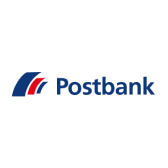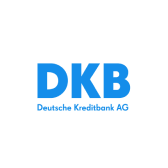- What are financial investments?
- How to invest your money
- Robo-advisors
- Short, medium and long-term investment options in Germany
- Real estate investment in Germany
- Investing in gold and commodities
- Frequently asked questions
Investments in comparison: Find the right form of investment!
Savers in Germany have various options to invest their money securely and generate a reasonable return: from money market savings accounts and investment funds to gold and real estate. Verivox offers several comparison tools to help you find the best way to invest money:
- Depot: find share dealing accounts that offer affordable fees. You can find an English guide to using the comparison tool under Broker Comparison.
- Tagesgeld and Festgeld: compare various fixed-rate and money market savings accounts. English-language information is available under Savings Account Comparison.
What are financial investments?
Financial investment refers to the setting aside of a fixed amount of money and expecting some kind of return. You can invest in a huge variety of assets by entrusting your money to a bank, investment fund, insurance company or another provider. When comparing the various options, the principal criteria are:
- Risk of loss
- Return (interest income or capital gains)
- Liquidity (availability)
Given that no single type of investment can excel in all three of these categories, you must focus on the factors that are most important to you. A particularly secure investment with a high interest rate, for example, may offer relatively poor access to the sum you invest. As a rule, the higher the potential return, the greater the risk.
How to invest your money
If you want to put money aside on a savings account, you can simply open an account with the provider of your choice. However, in order to invest in shares or other securities, first you need to open a share dealing account (Depot). This is a special account for holding and trading securities.
Robo-advisors
If you do not wish to engage actively in trading securities, you can manage your investments through an automated robo-advisor. These digital platforms use computer algorithms to construct an automated portfolio to fit an investor’s risk profile. Robo-advisors often invest in index or other types of exchange-traded funds (ETFs). A digital asset manager of this kind can be an attractive proposition for investors with little prior experience of investment strategies, and for those who prefer to rely on professional technical expertise.
Short-term investment options in Germany
Only a few banks pay interest on money held in current accounts, and the rates are usually so low that the income is eroded by inflation. The short-term investment options described below offer a more favourable return on your investment:
- Passbook savings account (Sparbuch): Interest rates with this type of account are usually quite low. Investors can withdraw up to 2000 euros within a 30-day period. Larger amounts are available only by closing the account; if the three-month notice period is not observed, the bank charges an early withdrawal penalty (Vorschusszinsen) in the amount of one-quarter of the credit interest rate.
- Money market savings account (Tagesgeldkonto): The best money market interest rates are often higher than those offered by passbook savings accounts. Another advantage of this type of account is that gives the holder access to their entire credit balance at all times. As with a passbook savings account, the interest rate is variable and can change daily. You can find the current interest rates offered by different providers with the Verivox money market account comparison tool (Tagesgeld-Vergleich).
- Money market funds (Geldmarktfonds): Money market funds are a low-risk investment option. Deposits are invested in short-term bonds, generally with a term of six to twelve months. When interest rates are low, they can be rather unappealing unless they offer a premium (Agio). In addition, the investor pays a management fee. Money market savings accounts are free and usually generate better returns than these funds.
- Investment certificates (Zertifikate): A certificate carries an issue premium of around 1.5 percent. Compared with an investment fund, however, these securities have a short term, mostly of 12 to 18 months. The customer receives a guaranteed interest rate for the term. Certificates are backed by shares in one or more company. If the shares satisfy a defined criterion during the term of the certificate, the holder also receives a bonus. It is this bonus that makes certificates so attractive. In many cases, however, they are structured in such a way that the bonus is not paid. Investment certificates are suitable only for investors who understand the stock market well. You need a share dealing account in order to invest in certificates.
All the investments described above, except for money market funds, are covered by the statutory deposit protection scheme (Einlagensicherung).
Medium-term investment options in Germany
Medium-term investments generally have a term of up to seven years. They are suitable for those who wish to save money for a particular purpose and want to have a certain amount of money available in a few years’ time. Medium-term investments include:
- Fixed-rate savings account (Festgeldkonto): If you invest in a fixed-rate savings account, you cannot access your money at all during the agreed term. Terms vary between 30 days and ten years – the longer the period, the higher the interest rate. The saver cannot close the account before the end of the term in order to take advantage of rising interest rates. Some banks automatically reinvest the money unless timely notice is given.
- Savings bond (Sparbrief): As an investment, these bonds are similar to fixed-rate savings accounts. Savings bonds can be purchased for 100 euros upwards and have a term of several years. At the end of the term, they expire automatically – the investor does not have to give notice. They cannot be redeemed before maturity or traded on the stock exchange. Savings bonds are included in the Verivox Festgeldvergleich.
- Savings scheme (Sparplan): There are several savings schemes that serve as investment options in Germany, including those funded by employers on behalf of their employees (vermögenswirksame Leistungen), home loan and savings contracts (Bausparvertrag), and investment savings schemes (Investmentsparplan). Some banks offer this type of investment with incremental interest rates – the longer the term, the sharper the increase in the interest rate towards the end of the term. With an equity fund savings scheme (Aktienfonds-Sparplan), however, there is a risk that stock prices can fall just when you need access to the investment proceeds.
- Fixed-interest securities (Festverzinsliche Wertpapiere): These securities can be issued with a longer or shorter term. The amount of interest depends on the term, capital market interest rates, and the issuer’s credit standing. Fixed-interest are traded on the stock exchange and subject to price fluctuations. During their term they pay interest at an agreed fixed rate, and at the end they are redeemed by the issuer at their nominal value. Convertible bonds (Wandelanleihen) are a special case; the issuer can redeem the bond by exchanging it for a specified number of its shares.
Long-term investment options in Germany
Unlike short and medium-term investments, long-term investments are often used to build up additional retirement funds. Savers generally incur a loss if they cash in these investments early. Typical long-term investments options in Germany include:
- Endowment policies (Kapitallebensversicherungen) and pension plans (Rentenversicherungen): Among insurance policies, those that are backed by equity funds often generate the best returns. Although policies with guarantees are increasingly disappearing from the market, this type of investment remains an attractive alternative to the strategy of investing only in securities because tax is not charged until the policy pays out. German government subsidies for company pension schemes (betriebliche Altersvorsorge) and for Riester (Riester-Rente) and Rürup pensions (Rürup-Rente) can significantly increase the returns.
- Stocks and shares (Aktien) or equity funds (Aktienfonds): If you want to invest money in Germany for the long term, stocks can offer high returns. Over a period of decades, stock market prices rise steadily, even after a downward adjustment. Since marketable securities are tangible assets, they also offer protection against inflation – share prices are not affected by a general decline in purchasing power. Investors in shares or equity funds should be willing to hold their assets for a period of ten years or more in order to ride out any fall in share prices.
- Index funds (Indexfonds): An index fund is a type of exchange-traded fund (ETF) and is of particular interest to newcomers because there is no management fee. Instead of being overseen by a manager, they track an index automatically.
- Fixed-income securities (Festverzinsliche Papiere) and fixed-interest funds (Rentenfonds): These have longer maturities and thus offer attractive returns. As with medium-term securities, the interest rates with this type of investment depend on the term, capital market interest rates, and the issuer’s credit standing.
- Closed-end investment funds (Geschlossene Fonds): Those who are looking for the best investment without exposure to high risk should avoid closed-end funds. Shipping funds in particular have repeatedly failed to generate the projected charter revenues in the recent past. Many of these funds had to be wound up prematurely, which resulted in massive losses for investors. The secondary market for closed-end funds is very small, so that premature disposals are seldom possible. As a rule, the funds have a term of seven years or more.
Real estate investment in Germany
Investing in property definitely calls for a long-term strategy in order to generate a profit when selling. On the other hand, some people invest in property without any intention of selling. They typically intend to live in the property rent-free when they reach a certain age or to use the rental income to supplement their pension. Real estate does not lose its value through inflation. In addition, the owner can adjust the rent.
However, real estate investment also has its pitfalls:
- Difficulties can arise when a property must be sold at short notice.
- As with any investment, spreading the risk is important. If you put all your eggs into one basket by investing in a single asset or property, the risk exposure is high. If you make a loss, your entire investment is at risk.
- When you buy a property, spreading the risk is particularly complicated, because often all your assets are tied up in the investment.
If you are looking for a short-term investment, therefore, investing in property may not make sense.
Investing in gold and commodities
Gold does not generate any regular income. It is regarded as a hedging instrument against inflationary tendencies, but gains can be made when the price rises. Investors can purchase gold both physically and by way of certificates. Investment companies also offer special funds that invest in companies in the gold industry. To diversify your investment portfolio, there are several other options besides gold.
The market for commodities (Rohstoffe) is divided into the following segments:
- Precious metals, e.g. gold, silver and platinum
- Industrial metals, e.g. steel, zinc and aluminium
- Energy resources, e.g. fossil fuels such as coal, natural gas and petroleum, as well as renewable energies
- Agricultural resources, e.g. cereals and cocoa
- Livestock, e.g. feeder cattle and lean hogs
Trading commodities provides good long-term protection against inflation. Nevertheless, this type of investment is not without risk: short-term losses can sometimes be high. In the case of gold, for example, which is generally regarded as a safe investment, in times of crisis enormous quantities can change hands and trigger severe price fluctuation. If you want to invest in gold or other commodities, you should not be expecting quick profits. These are long-term investment products.
Frequently asked questions
In principle, the German Income Tax Act requires that withholding tax (Abgeltungssteuer) is deducted from interest income. The tax is paid over to the competent local tax office by your bank. Whether you actually pay interest income depends on various factors.
Tax-free savings allowance (Sparerpauschbetrag)
The personal tax-fee savings allowance in Germany is 801 euros. Married couples who are assessed for tax jointly are entitled to 1,602 euros. In order to claim this allowance, however, you must apply for exemption from capital yields withholding tax (Freistellungsauftrag für Kapitalerträge) to your bank. The allowance can be split between different investments if you present an exemption application to each bank in which you hold investments. The sum of the amounts stated in the applications cannot exceed the maximum allowance.
Non-assessment certificate (Nichtveranlagungsbescheinigung)
Low-income earners who are exempt from paying income tax can receive tax-free interest income without applying for exemption from capital yields withholding tax. After presenting their bank with a non-assessment certificate, all interest income is paid tax-free. The amount of interest income is irrelevant. You can apply for the certificate in Germany at your local tax office (Finanzamt); it is valid for 36 months unless your income position changes sooner.
Customary payment transactions cannot be made directly with money market and fixed-rate savings accounts. Deposits and withdrawals can be made only through a linked account (Referenzkonto), which is usually a current bank account.
Savings accounts for minors are available from most banks, but they cannot be opened without the consent of a parent or guardian. Proof of identity of both the adult and the child is also required, which can be provided by way of a passport or birth certificate.
Compound interest refers to the principle that when you save money, as well as earning interest on the savings, you also earn interest on the interest itself. Therefore, every year that the money is in your account you are earning interest on each previous year’s interest. In consequence, not only are your savings growing over time, but the rate at which they grow gets faster as well.
A share dealing or trading account (Depot) is a special account that serves the purpose of trading and holding securities. You need a share dealing account in order to buy and sell shares, funds or bonds.
Once you have decided on a suitable provider using the Verivox comparison tool for trading platforms (Depotvergleich), you can open a share dealing account in three simple steps:
- First enter your personal details on the website of your chosen account provider. You will then be sent an application form by post or e-mail, which you must sign.
- Banks are required to verify your identity before you can open an account. By way of the PostIdent procedure, you can verify your identity at the nearest post office. Some providers also allow you to identify yourself from home in a video chat (VideoIdent procedure).
- Once your identity has been verified, return the signed application form to the provider, which will then open your share dealing account.
Festgeldangebote vergleichen
-
Sparzinsen von rund 800 Banken im Vergleich
-
Bis zu 4,1 % Zinsen für 1-jähriges Festgeld
-
Nur Angebote mit 100% Einlagensicherung
Mehr rund um Geldanlagen
Das ist Verivox
Seit 1998 haben unsere Experten über 8 Millionen Verbrauchern beim Vergleichen und Sparen geholfen.
Mehr erfahrenSie können bei Verivox stets auf aktuelle Tarifangebote und einen mehrfach ausgezeichneten Kundenservice vertrauen.
Mehr erfahrenWir finanzieren uns durch Provisionen und sind dennoch unabhängig - dank unserer größtmöglichen Marktabbildung.
Mehr erfahren



